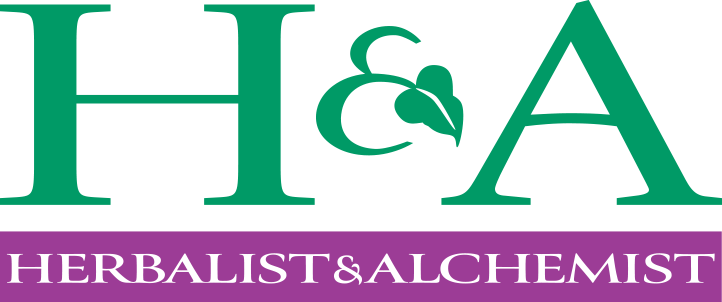In your 16 years at Herbalist & Alchemist as a staff herbalist and general manager, what was your favorite part of the job?
My favorite part of the job had to do with education—helping to write the initial versions of the Specific Indications guide and later doing
classes for health food stores and other customers.
Does your formal herbal training assist you in your job as office manager for United Plant Savers?
It’s really a lot more than my herbal training that assists me in my office manager job. I use all the skills I learned managing the office at H&A including computer,
customer service, keeping organized. Perhaps especially my experience with the herbal products industry generally, and botanical raw material supply specifically,
have been key.
At UpS, I help people with a wide range of questions and issues, from identifying plants by photos to where to market the herbs they grow. I also write and organize
educational materials for UpS, like the Botanical Sanctuary Resource Guide. It is partly my experience as a clinical herbalist, but really my office manager job draws on my very
wide-ranging experience, since I am not answering questions for people about what they should do for their health at UpS.
Over your many years teaching herbal medicine have the interests and backgrounds of students changed? How?
I think more people are interested in herbal medicine. The focus has shifted more to helping others, especially people without access to medical care and in emergency
situations (several of my students are street medics at political protests). A lot of younger people are studying herbs, but it’s still mostly female. I also see more herbalists
interested in science, getting beyond folk use of herbs to a more complete understanding of the human body, plant chemistry and energetic theory.
I am excited for contemporary American herbalists... We manage to maintain our great diversity and eclecticism while very much opening our perspectives to science,
multicultural traditional theory, clinical trials... A good blend of old and new. Our profession is connected, cross-pollinating and gaining respect. My primary focus these days
is the Vermont Center for Integrative Herbalism, which is a non-profit educational organization encompassing a school of herbal medicine and a sliding-scale clinic. I invite you
to visit www.vtherbcenter.org. We really have an awesome mission.
